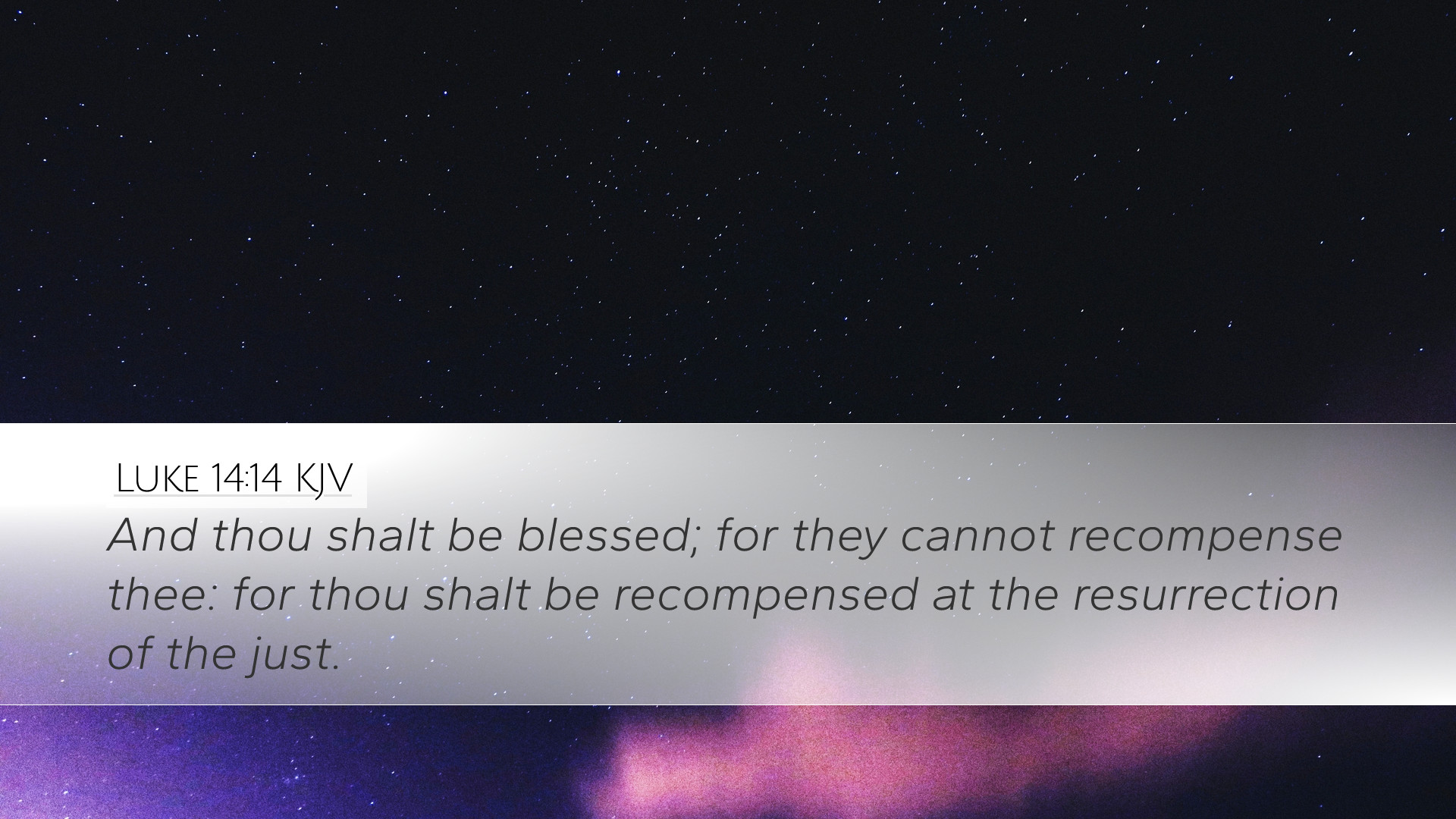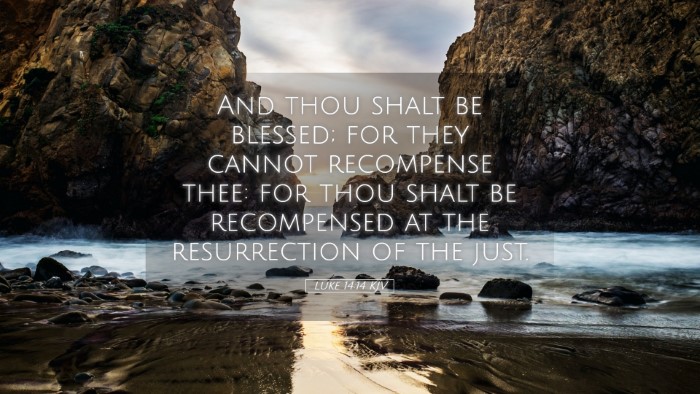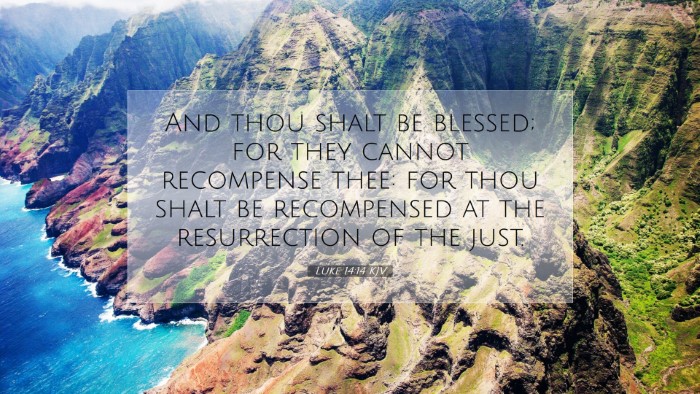Commentary on Luke 14:14
Verse Context: Luke 14:14 states, "And thou shalt be blessed; for they cannot recompense thee: for thou shalt be recompensed at the resurrection of the just." This verse is part of a broader discourse by Jesus on humility and the nature of true reward in the Kingdom of God.
Introduction
This verse addresses the attitude of giving and the motives behind our actions, particularly in the context of social gatherings and the expectation of reciprocation. Christ's teaching encourages a deeper understanding of true benevolence and the spiritual rewards that follow acts of kindness towards those who can offer no repayment.
Insights from Commentaries
Matthew Henry’s Commentary
Matthew Henry underlines the principle of grace exemplified in this verse. He notes that Jesus points out the foolishness of expecting rewards in this life from those we help. He emphasizes that the act of generosity should stem from love and compassion, rather than seeking human reward.
- Human Limitations: Henry emphasizes the limitations of human reciprocity; those who are poor or unable to repay are often neglected, yet they should not be disregarded in our generosity.
- Divine Reward: He points out that while earthly rewards are tempting, the true blessing lies in the heavenly recompense that awaits those who selflessly serve others without ulterior motives.
Albert Barnes’ Notes on the Bible
Albert Barnes elaborates on the notion of blessings that come from acts of kindness and the ultimate reward that believers can anticipate. He contextualizes the statement within the larger narrative of Jesus’ banquet parables, which highlight the inclusiveness of God’s Kingdom.
- Recompense at the Resurrection: Barnes accentuates the significance of “the resurrection of the just”, interpreting it as a time when believers will be rewarded for their unrecognized and unappreciated acts of kindness and service.
- Contrast with Worldly Expectations: He argues that the blessings given by God far outweigh any temporary social recognition and suggests that Christians should prioritize their actions based on eternal values rather than immediate gratification.
Adam Clarke’s Commentary
Adam Clarke provides a thorough analysis of this teaching by examining the cultural context of hospitality in Jesus’ time. He notes that meals were a significant opportunity for showing social status, but Jesus flips this expectation by inviting attention to those who typically would not be honored.
- Character of True Charity: Clarke points out that true charity involves giving without expecting anything in return, highlighting the moral imperative for followers of Christ to act with humility and love.
- Encouragement for Believers: He remarks that this teaching serves as an encouragement for believers to focus on their eternal home, where God’s reward surpasses any earthly acknowledgment.
Theological Implications
The implications of Luke 14:14 extend into several theological areas including eschatology, ethics, and soteriology:
- Eschatological Hope: The promise of divine recompense points believers towards a future hope, strengthening faith in God's justice and mercy.
- Ethical Living: Followers of Christ are called to live ethically, displaying selflessness and generosity in a world often marked by transactional relationships.
- Soteriological Aspects: The emphasis on acts of kindness as a response to grace underscores the transformative power of salvation, which compels believers to reflect Christ's love in practical ways.
Practical Application
For pastors, students, theologians, and scholars, the teachings encapsulated in this verse challenge the mindset of reciprocity in Christian service. They beckon followers of Christ to cultivate:
- Generosity without Expectation: Encourage a community ethos that values support for the marginalized without the anticipation of return.
- A Focus on the Eternal: Remind church members of the eternal implications of their actions, fostering a mindset that values heavenly rewards over earthly recognition.
- Holistic Engagement: Call for active engagement in acts of kindness, not merely for personal satisfaction but out of a genuine love for others as modeled by Christ.
Conclusion
Luke 14:14 serves as a profound reminder of the nature of divine reward that contrasts sharply with human expectations. By reflecting on the insights from Matthew Henry, Albert Barnes, and Adam Clarke, we are invited to deepen our understanding of what it means to serve others selflessly in anticipation of the greater rewards that await us in the life to come. True blessing flows from acts of love, fulfilled not in this life, but at the resurrection of the just.


